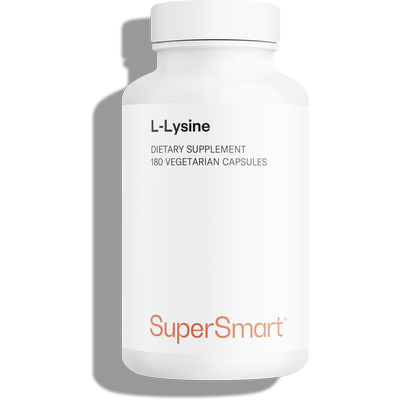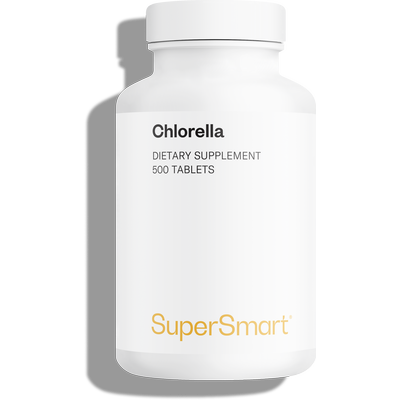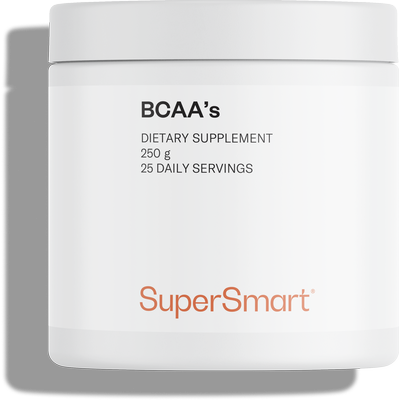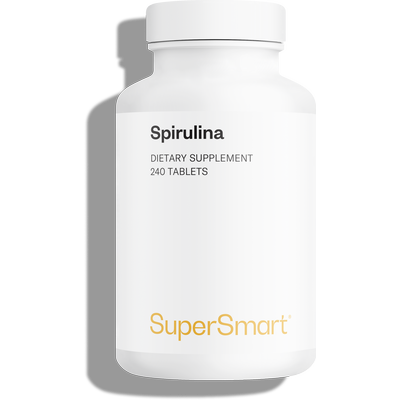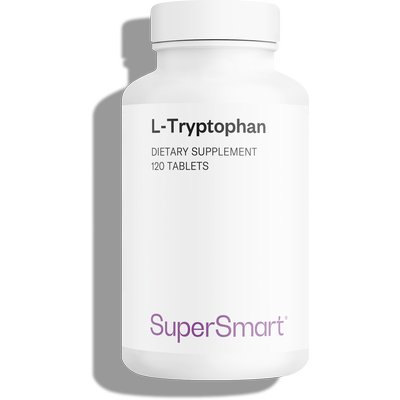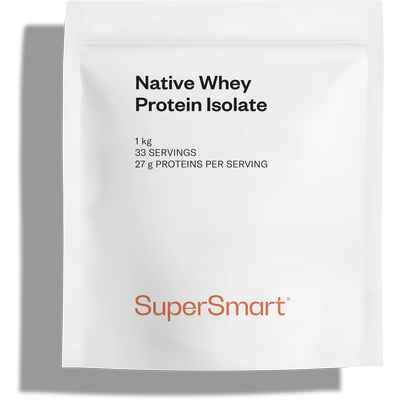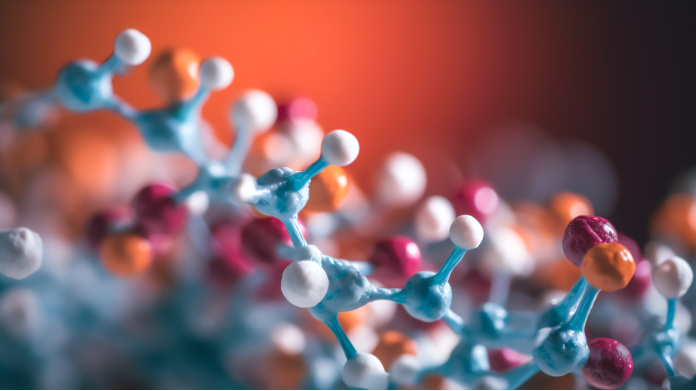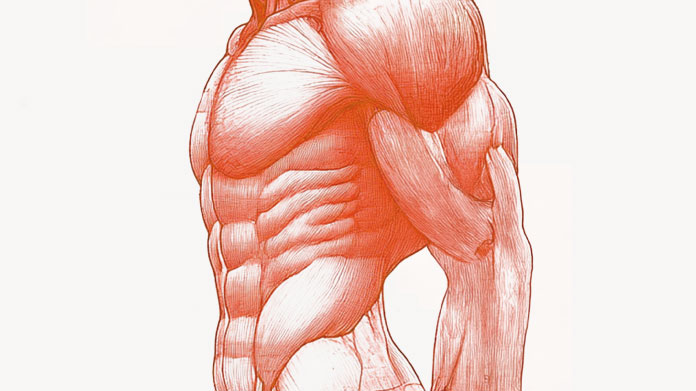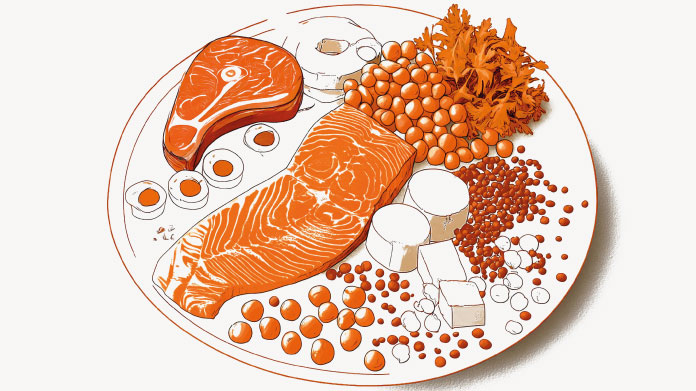What are the 9 essential amino acids and why are they vital?
Essential to our health, essential amino acids are not produced by the body. Discover their role, their dietary sources and how supplements can help meet daily requirements.

What exactly are essential amino acids?
Essential amino acids are organic compounds that are essential for our bodies to function properly. They serve as the building blocks of proteins.
They are also necessary for the production of enzymes and hormones and are involved in numerous metabolic processes.
Unlike non-essential amino acids, which the body is capable of producing itself, essential amino acids cannot be synthesised by the body.
They must therefore be supplied externally, via the diet or food supplements.
What's more, some people need a higher intake, such as athletes, the elderly or those on a low-calorie diet (1).
There are a total of 9 essential amino acids (2), each of which plays an important role in our health:
- histidine: essential for tissue growth and repair, it also appears to be involved in histamine production;
- isoleucine: believed to support muscle recovery and regulate blood sugar levels;
- leucine: stimulates muscle protein synthesis and promotes recovery;
- lysine: believed to contribute to collagen formation and calcium absorption;
- methionine: appears to play a role in fat metabolism and detoxification;
- phenylalanine: probably serves as a precursor to neurotransmitters such as dopamine and noradrenaline;
- threonine: thought to contribute to the health of connective tissue and the skin;
- tryptophan: a precursor of serotonin, it is thought to help regulate mood and sleep;
- valine: may help boost muscle energy and tissue repair.
How and why should we consume all the essential amino acids?
What are our daily amino acid requirements?
Essential amino acid requirements vary according to age, weight, level of physical activity and state of health.
On average, the European Food Safety Authority recommends a daily intake of 0.83g of protein per kilo of body weight for an adult, in order to provide all the amino acids essential to the human body (3).
These intakes should be higher for pregnant and breastfeeding women, as well as for infants, children and adolescents.
Which foods contain essential amino acids?
Foods rich in complete proteins are the best sources of essential amino acids.
They are mainly found in animal products: meat, fish, eggs and dairy products. These contain all the essential amino acids in the right proportions.
Some essential amino acids are also found in foods rich in plant proteins: soya (tofu, tempeh, etc.), grains, quinoa, buckwheat, brown rice, lentils, white and red beans, etc.
To cover the needs of people following a meat-free diet, such as vegetarians and vegans, it is advisable to combine several types of plant food in the same meal. This combination provides a complete profile of essential amino acids (4).
Certain algae, such as spirulina (5) or chlorella (6), are also good sources of complete proteins containing essential amino acids.
Covering the whole range of amino acids to meet the body's needs
It's important to remember that the body cannot store amino acids in the same way as it can other nutrients such as fats or carbohydrates.
For the body to function optimally, it is essential to consume all the essential amino acids, as they act in synergy.
Their effectiveness depends, in part, on their simultaneous and balanced presence in the body. A deficiency in any one of them can compromise the use of the others and slow down key metabolic processes.
An unbalanced or restrictive diet can lead to insufficient intake of certain amino acids.
The consequences of an amino acid deficiency
An inadequate intake of essential amino acids can lead to a number of imbalances:
- persistent fatigue and loss of energy;
- muscle wasting and difficulty in recovering after exercise;
- mood disorders, irritability, anxiety (particularly in the case of tryptophan deficiency);
- skin problems, hair loss, brittle nails;
- weakening of the immune system.
For some people (the elderly, athletes, strict vegetarians, convalescents, etc.), a targeted intake via food supplements may be recommended to prevent these risks.
Food supplements for more targeted amino acid supplementation
Supplements containing several amino acids
When it becomes difficult to cover your needs through food alone (for example, if you eat little or no meat), food supplements containing essential amino acids can boost your intake.
Some supplements provide one or more essential amino acids directly.
BCAA (Branched-Chain Amino Acids) supplements, for example, contain 3 branched-chain amino acids: leucine, isoleucine and valine.
The latter are being studied in particular for their potential role in muscle metabolism and recovery (7).
Several studies suggest that BCAAs may promote protein synthesis and reduce muscle breakdown, particularly after intense physical exercise.
![]() Discover BCAA's, a dietary supplement with a ratio corresponding to the distribution observed in the muscles.
Discover BCAA's, a dietary supplement with a ratio corresponding to the distribution observed in the muscles.
Supplements formulated around a particular amino acid
Some food supplements focus on a particular amino acid.
For example, L-tryptophan is often used in formulas dedicated to emotional balance or sleep (8).
Tryptophan is a precursor of serotonin ('the happiness hormone') and melatonin ('the sleep hormone').
![]() Discover the L-Tryptophan food supplement, which increases tryptophan levels in the blood.
Discover the L-Tryptophan food supplement, which increases tryptophan levels in the blood.
For its part, L-lysine appears to be involved in the formation of collagen, a major structural protein in connective tissues, particularly tendons and muscles.
This is why it is being studied as a means of maintaining muscle mass.
It is also thought to play a part in the intestinal absorption of calcium, facilitating its transport through the cells of the digestive wall, which could contribute to bone health.
On a metabolic level, lysine is thought to be involved in the production of carnitine, an amino acid derivative that helps transport fatty acids to the mitochondria, where they are converted into energy.
![]() Discover the L-Lysine food supplement, with 100% natural excipients.
Discover the L-Lysine food supplement, with 100% natural excipients.
Protein supplements
Some supplements designed to increase overall protein intake also provide the body with all the essential amino acids.
This is the case with native whey isolate, an ultra-filtered whey protein renowned for its purity and bioavailability.
It contains all 9 essential amino acids in ideal proportions, helping to support daily needs, particularly for athletes.
![]() Discover Native Whey Protein Isolate powdered food supplement with no added flavouring, colouring, sugar or sweeteners.
Discover Native Whey Protein Isolate powdered food supplement with no added flavouring, colouring, sugar or sweeteners.
SUPERSMART ADVICE
References
- Ferrando AA, Wolfe RR, Hirsch KR, Church DD, Kviatkovsky SA, Roberts MD, Stout JR, Gonzalez DE, Sowinski RJ, Kreider RB, Kerksick CM, Burd NA, Pasiakos SM, Ormsbee MJ, Arent SM, Arciero PJ, Campbell BI, VanDusseldorp TA, Jager R, Willoughby DS, Kalman DS, Antonio J. International Society of Sports Nutrition Position Stand: Effects of essential amino acid supplementation on exercise and performance. J Int Soc Sports Nutr. 2023 Dec;20(1):2263409. doi: 10.1080/15502783.2023.2263409. Epub 2023 Oct 6. PMID: 37800468; PMCID: PMC10561576.
- https://www.ncbi.nlm.nih.gov/books/NBK557845/#:~:text=Nine%20amino%20acids%2C%20including%20histidine,supplied%20from%20an%20exogenous%20diet.
- https://www.efsa.europa.eu/fr/press/news/120209#:~:text=Adultes%20(y%20compris%20les%20personnes,jour%2C%20selon%20l'%C3%A2ge.
- Mariotti F, Gardner CD. Dietary Protein and Amino Acids in Vegetarian Diets-A Review. 2019 Nov 4;11(11):2661. doi: 10.3390/nu11112661. PMID: 31690027; PMCID: PMC6893534.
- Podgórska-Kryszczuk I. Spirulina-An Invaluable Source of Macro- and Micronutrients with Broad Biological Activity and Application Potential. 2024 Nov 15;29(22):5387. doi: 10.3390/molecules29225387. PMID: 39598773; PMCID: PMC11596570.
- Bito T, Okumura E, Fujishima M, Watanabe F. Potential of Chlorellaas a Dietary Supplement to Promote Human Health. 2020 Aug 20;12(9):2524. doi: 10.3390/nu12092524. PMID: 32825362; PMCID: PMC7551956.
- Martinho DV, Nobari H, Faria A, Field A, Duarte D, Sarmento H. Oral Branched-Chain Amino Acids Supplementation in Athletes: A Systematic Review. 2022 Sep 27;14(19):4002. doi: 10.3390/nu14194002. PMID: 36235655; PMCID: PMC9571679.
- Kikuchi AM, Tanabe A, Iwahori Y. A systematic review of the effect of L-tryptophan supplementation on mood and emotional functioning. J Diet Suppl. 2021;18(3):316-333. doi: 10.1080/19390211.2020.1746725. Epub 2020 Apr 10. PMID: 32272859.
1 Days
Trustworthy company with tested products
Trustworthy company with tested products
Trusted
6 Days
Efficiency and speed
Efficiency and speed
Cuccie
7 Days
GOOD BRAND IN FOOD COMPLEMENTS
GOOD BRAND IN FOOD COMPLEMENTS - SERIOUS WITH GOOD DOCUMENTS AND DETAILS SCIENTIST. AND SERIOUS HONNEST COMMERZIALISATION. I HAVE TRUST IN THEIR PRODUCTS.
FENOGLIO Guy
9 Days
Very good experience
Very good experience, the products arrived in time, in perfect condition and are good quality. Thank you.
GABI TIRCOCI
15 Days
very good expereince
very good expereince
Jelena Đaković
15 Days
Very good products.
Very good products.
Agnes BENDSAK
17 Days
Just OK
Just OK, ordering from company for many years and being safisfied
Lynn Mae
17 Days
Recomendo
Produtos encomendados são recebidos atempadamente e de acordo com o anunciado! Muito satisfeita!
Carla Sofia
18 Days
Everything is great!
Everything is great!
Jonas
23 Days
The delivery was fast and the product…
The delivery was fast and the product is great
SOMMARIVA Gianni
24 Days
Great service and lots of information
Great service and lots of information
Gabi
27 Days
Service Satisfaction
I’m satisfied with the service; it fulfilled what it set out to do.
Anfhony Abreu
30 Days
Original product and fast delivery
Original product and fast delivery. I haven't started it yet, but will do soon.
Vincenza Catania
32 Days
Good quality
Good quality. Good service.
Leonel Guzman
35 Days
Top!!!!!!!!
Top!!!!!!!!
Michael
of experience
your money back
##montant## purchase


